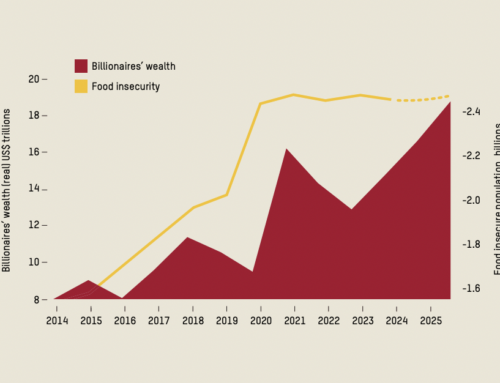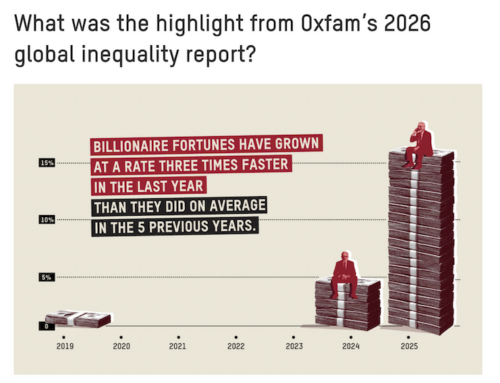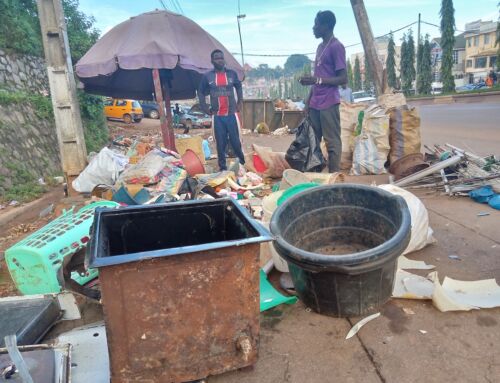
Researching students’ awareness on Laudato Si’ in Nairobi County – Kenya
by: Sr. Kinikonda Okemasisi
It is now nearly ten years since the release of the encyclical letter, Laudato Si’, on the care for our common home by Pope Francis on May 25, 2015 – yet the world is still experiencing serious threats due to unsustainable use of natural and environmental resources. In the Encyclical, Pope Francis decries that we human beings have mistreated the environment such that it now risks becoming a desolate waste (Laudato si’ 21).
A key theme of Pope Francis is that we have hurt and mistreated our common home more in the last two hundred years than ever before (see Article 53). Unless a conscious paradigm shift is made in how we treat our environment today, we will have nothing to hand over to the next generation but an environment groaning with awful filth and stench. The Pope emphasizes that the earth is a gift, not a possession; it was given to us to administer, not to destroy. Hence, we must respect all of creation with its own goodness. The Pope reminds all human beings that we are called to be instruments of God in caring for the environment so that our planet might be as God desired when He created it. The Pope asserts that lack of response towards caring for the environment is a sign of lack of responsibility towards our brothers and sisters upon which all civil society is founded. Further, Pope Francis points out that deterioration of the environment and of society affect the most vulnerable people on the planet who form the greater part of the world’s population.
Turning to the young generation, Pope Francis asserts that young people have a ‘new ecological sensitivity and a generous spirit’ and are ‘making admirable efforts to protect the environment’ (LS.209). What Pope Francis is saying here finds resonance with Vatican II «Declaration on Christian Education” Gravissimum Educationis, (1965, no. 8). This document called on Catholic schools to be a new kind of environment. Based on these assertions, it struck me that Catholic schools in Kenya specifically within the County of Nairobi, could become the best place to spearhead a grassroot environmental movement with the hope of enlisting the young people in schools to actively participate in changing the face of mother earth.
The environmental picture of the face of the Nairobi city –Kenya, prompted this study. This city serves as a good example of the concern of Pope Francis, namely, that we have mistreated the environment such that it now risks becoming a desolate waste. When one takes a walk around Nairobi city and its environs, one sees the piles of litter, the polluted water, the foul smell of garbage wastes, and poor drainage systems. One is puzzled and taken aback and forced to ask the question whether there is any awareness even among young people in this County, regarding the call to care for the environment as outlined in Laudato Si?
«Unless a conscious paradigm shift is made in how we treat our environment today, we will have nothing to hand over to the next generation but an environment groaning with awful filth and stench.»
I did a study in Catholic schools in Nairobi County –Kenya to capture the students’ awareness of Pope Francis’ encyclical letter Laudato Si’, on care for our common home and the study had three objectives namely:
- To find out the students’ awareness on Pope Francis’ encyclical letter Laudato Si on the care of our common home within Nairobi County.
- To assess the participation of students in caring for our common home within Nairobi County.
- To determine the obstacles in successfully implementing the teaching of Pope Francis on the care of our common home enshrined in Laudato Si.
The following were the Assumptions of the study:
- Until now, efforts to promote action for the care of the environment in Catholic secondary schools within Nairobi County have not been consistent or coordinated.
- Awareness of students and teachers in Catholic Secondary schools about the status of the environment can have a positive influence in implementing the teaching enshrined in the encyclical Laudato Si’.
- With strong advocacy, Catholic secondary school students have the ability to transform the environment at least at the local level.
- The schools together with parents should teach the students the importance of community service outside their school premises – such as cleaning Nairobi River – since their actions can speak volumes about the need to care for our common home.
Methodology
This was a cross-sectional study that involved 270 students from 10 schools out of the 15 Catholic sponsored secondary schools and 10 teachers and 10 principals. The 270 students were those in the established environmental clubs in each school with the 10 teachers being the patrons of the environmental clubs. The study used both quantitative and qualitative tools. The 270 students and 10 teachers responded to the self-constructed questionnaire while the chief researcher interviewed the principals and their responses recorded. Data was analyzed with the use of Statistical Package for Social Sciences (SPSS) and presented in frequency (f) and percentage tables (%), pie charts and bar graphs. About the third objective. The obstacles identified by the students included lack of awareness on Laudato Si’, lack of support from fellow students and teachers and a general indifferent attitude about environmental care and its impact on their lives and the lives of the entire society. Interviews with the respective principals also revealed that like the students, they too were not aware of Pope Francis’ encyclical letter of Laudato Si’. The care of the environment is confined to the school premises and anything outside is the job of the government. They fear that the filth outside the school premises can endanger the health of the students and attract the wrath of the parents.
The study concludes that there is a long way to go in regard to environmental awareness and participation in restoring our common home to its original home. In order to achieve this, we all need to undergo an ecological conversion.
Recommendations.
- Lack of awareness about Laudato Si’ requires consolidated efforts by the priests where the students go for mass. The principals, teachers and parents should be up to date with the Catholic Social teachings and share with the students in the schools and at home.
- With adequate resources the media should be used to create general awareness about the care of our common home as enshrined in the encyclical of Pope Francis Laudato Si’
- The study recommends that the Catholic schools should be at the forefront in spear heading and implementing the Laudato Si’ mandates.
- The study recommends the need for resources for advocacy in schools about caring for our common home.
- Educationis, G. (1965). Declaration on Christian education. Vatican Council JI: The Conciliar and PostConciliar Documents, 725-738.
- Pontifical Council for Justice and Peace (2005) Comendium of the social Doctrine of the Church.
- Pope Francis (2015). Laudato Si’ Encyclical letter on care for our common home. Nairobi: Pauline Publications.

Sr. Dr. Kinikonda Okemasisi
PhD in Educational Administration and Planning
Belongs to the Congregation of the Little Sisters of Saint Francis of Assisi
Lecturer at Tangaza University College, School of Education, and the coordinator of the master’s program (leadership and Administration)










